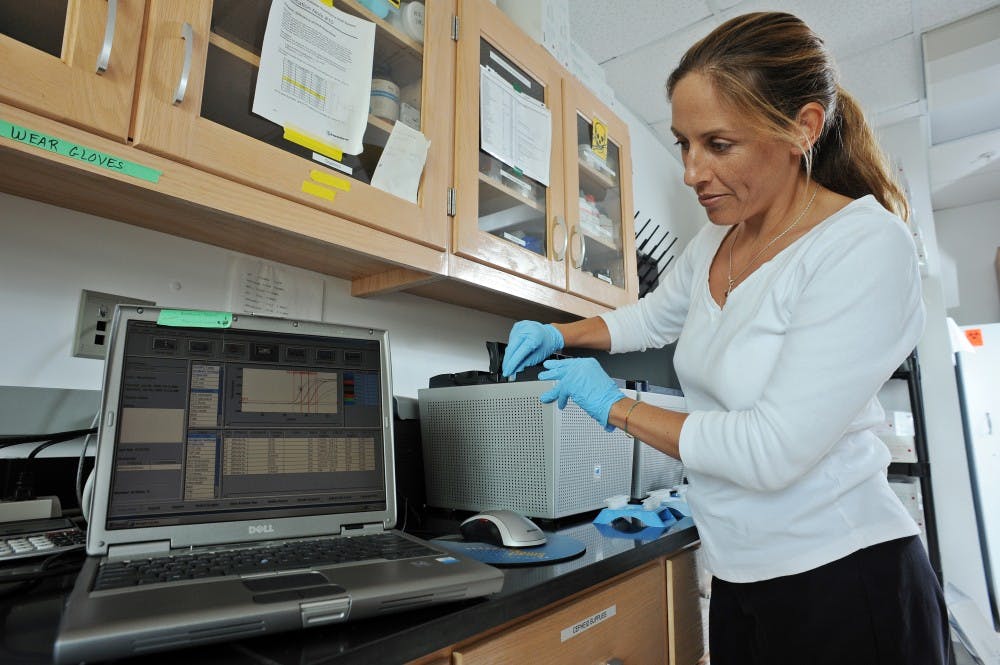Hurricane Florence caused an overflow of water from sewages, hog farms and other unclean sources, resulting in contaminated water.
Rachel Noble, professor of marine sciences at UNC's Institute of Marine Sciences, studies how this happens and what people can do to avoid becoming sick from the water.
“Whenever you have storm surge and flood waters, basically all of those things become inundated,” Noble said. “And they are not designed perfectly. They are not perfectly sealed. Many of them suffer from cracks and breaks, in a variety of locations that usually don’t present themselves as a problem, but then all of a sudden you have these flood waters and storm surge waters rushing in, and it causes the contamination to leak out, and from that you basically get contamination of the system from a broad perspective.”
Noble defined storm surge as “the ocean being pushed inland from the wind of the hurricane, and it's also the direction of the wind coming from the hurricane." This can be a major cause of flooding.
In the wake of Florence, UNC's Noble Lab has been actively running tests on the water.
“As a lab, it's kind of all-hands-on-deck to get as many samples as we can. We’ve been working with Division of Marine Fisheries Partners, and partners in other labs here," said Kelsey Jesser, a Ph.D. student working closely with Noble. "Those just require a lot of time and manpower to get through, so we’ve all been working and will continue to work on that specifically."
Jesser said the Noble Lab's goal is to educate the public as they continue to use North Carolina water and eat seafood from the coast. Images released by NASA cataloging debris and pollution along the coast after Florence's landfall have caused concern among citizens, but Noble said the picture's depiction of the coast is inaccurate.
“That’s a color-altered image, where essentially, the wavelength of the water — the water coming into the ocean at this time from the floodwaters — is very high in organic material,” Noble said.
“Those images are not of pollutants coming into the ocean; those images are actually of a different type of water that is contrasting itself from the perspective of wavelengths of light as compared to the ocean water. It simply has different properties."



